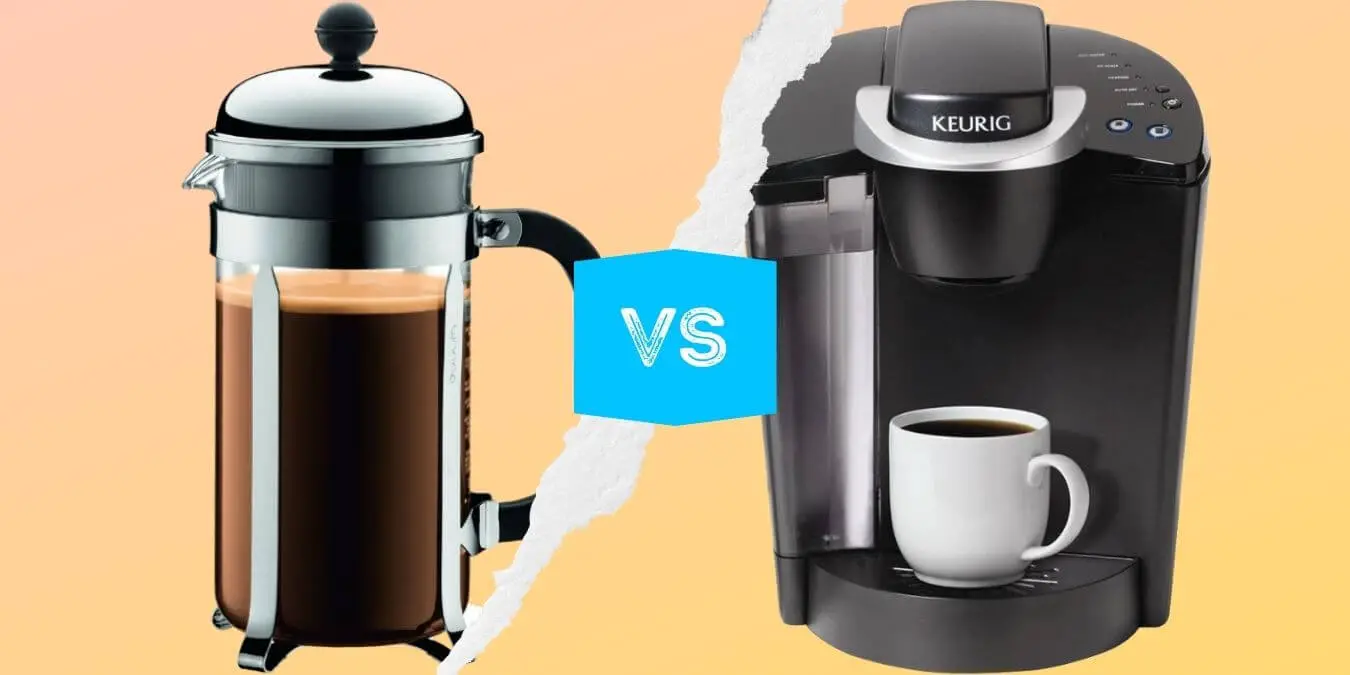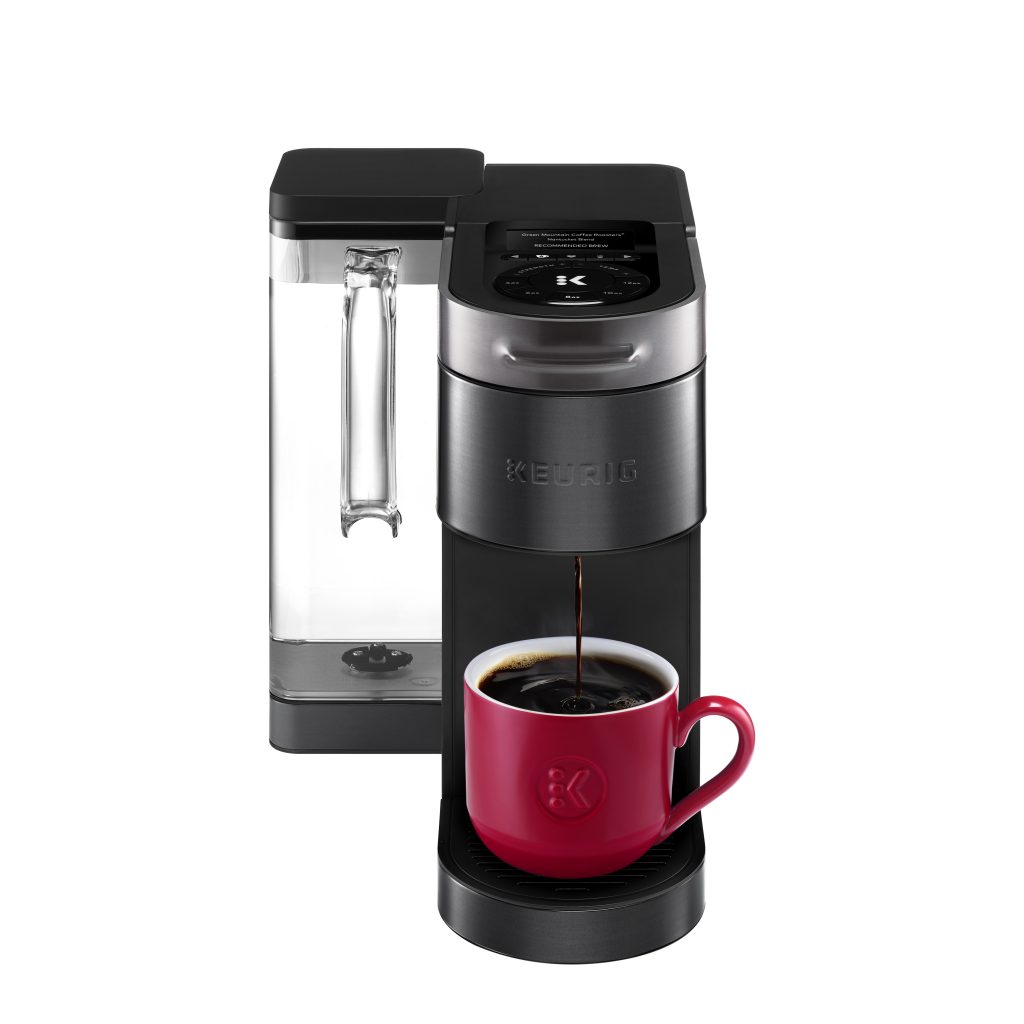I have had a Keurig for several years. Recently, a new friend of mine came over, took one look at the Keurig, and said, “Nope! Get yourself a French press. You can thank me later.”
I was intrigued, of course. She and I went on to discuss French press vs. Keurig for a good few minutes. By the end of our talk, I was excited about purchasing a French press.
Now that I have spent a week with it, I’d like to share my findings. Overall, my friend was right. A French press is better, BUT a Keurig definitely has its place. I will explain, so read on.
At A Glance: French Press vs Keurig Highlights
If you are in a hurry to decide between a french press or keurig machine, here are the highlights. But don’t stop here. Keep reading on for more detail and resources to make an informed decision.
French Press Pros and Cons
Pros
- A better choice for taste
- Only needs a quick rinse or clean after each use. No routine maintenance, otherwise
- Very little recurring costs, aside from the cost of coffee beans or grounds
- Can make a large amount of coffee at one time
- Better for the environment than Keurig
Cons
- Clean up can be a little more messy than Keurig
- Brew time takes longer than Keurig
Keurig Coffee Pros and Cons
Pros
- More convenient for daily use
- Fast brew time
Cons
- Doesn’t allow much control over how the coffee is brewed (can’t adjust for taste)
- Requires routine maintenance whereas a french press does not
- Recurring cost of k-cups can become expensive
- Can only brew one cup at a time
- Worse than french press for the environment (single use plastic with k cup)
Is a French Press Better Than Keurig?
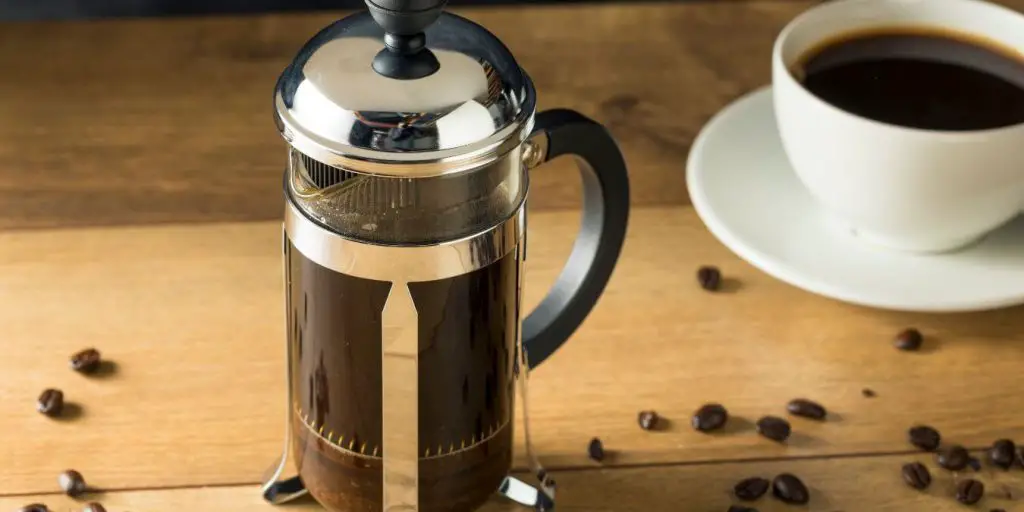
Basically, yes! A French press is superior, although a Keurig can be more convenient. Many folks prefer it for this reason, and that’s fine.
Let’s break down the attributes that matter to me and most people: flavor, convenience, cost, supplies, ease of use, volume, and environment. Flavor matters most to me, which is why I give the French press the win.
Flavor

The French press wins here by far. Choose any type of coffee grounds, and a french press makes a cup of coffee bursting with boldness and flavor. If you especially enjoy roasted flavors and notes of nuts, chocolate, and toffee, you are in for a treat. Additionally, you have control over the brewing process and can customize your coffee or recipe any way you like.
Meanwhile, Keurigs do not give you any say over the taste of your coffee. A Keurig might suit you well if you are not picky about coffee flavors. Avoid it if you love trying international flavors or enjoy being able to discern nuanced, subtle flavors in your coffee.
To get the most flavor from a Keurig, brew the smallest size cup possible. Keurig models typically let you brew varying mug sizes. But as you increase the mug size (amount of water used), the amount of coffee remains the same. The result: Weaker cups of coffee. Yes, some models do include the strong button which slows down the brewing process, but not all models come with this feature.
Convenience
When comparing Keurig vs french press for convenience, Keurig has a slight edge here. With a Keurig, all you have to do to brew coffee is load a cup and press the start button. That’s it.
You can also use the timer with your Keurig so your coffee is ready to help you greet the day. The timer also enables you to stagger coffeemaking during the day. It is really nice if multiple family members drink coffee.
Keurig Machines Require Regular Maintenance
However, a Keurig machine requires regular cleaning and maintenance due to their electrical and mechanical nature. For instance, you’ll have to descale your brewer every three to six months. When the descale light comes on, it’s time to remove these calcium deposits, or scales, that build up over the months. The scales won’t poison you or anything. They are nontoxic but ignoring them is bound to make your Keurig less effective. And let’s be honest, no one likes to troubleshoot a Keurig, but sometimes you just have to do it.
The steps involved in descaling are fairly simple, but the process takes a little more than an hour. Most of the time, it is the brewer “resting.” Keurig maintenance also involves replacing the needles that pierce the cups.
French Presses Are More “Hands-On”, But Require No Regular Maintenance!
OK, now onto French press convenience. This type of coffeemaker does require that you pay attention while the coffee is brewing or steeping. External timers come in handy so you don’t brew too long. However, ongoing maintenance and upkeep is practically nothing. You do a simple rinse and wash after each time you use the French press, and that is it.
Another thing worth mentioning: Keurigs require electricity while French presses do not. If you like freshly brewed coffee while camping or traveling, use a French press.
Brew Time
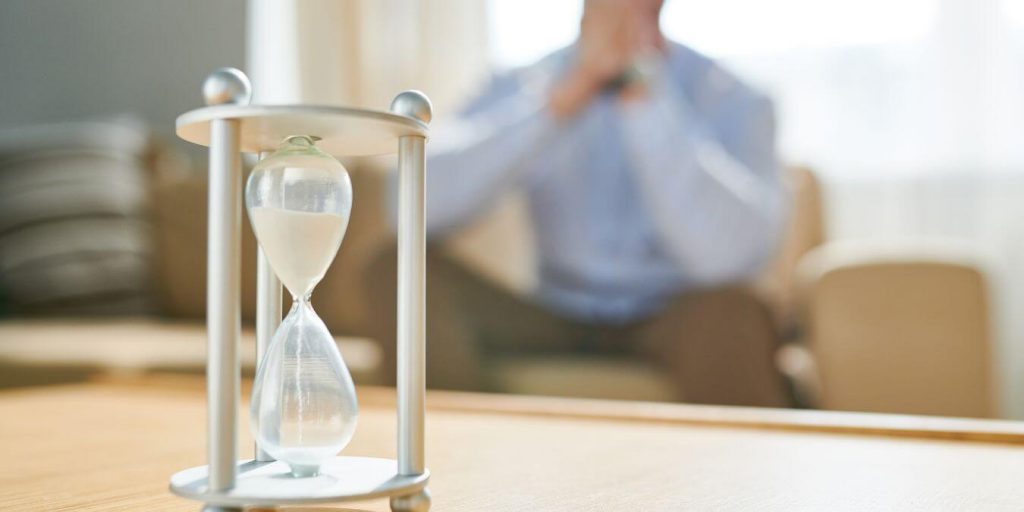
Both methods can get you a cup of coffee pretty quickly, although Keurig is fastest. Keurigs brew a cup of coffee in less than two minutes. French presses take about six minutes.
The time breaks down this way: two minutes to heat the water and grind the coffee beans and three to four minutes of steeping. If you opt for pre-ground beans, making French press coffee takes less time but might not be as flavorful.
Cost
French presses are definitely more cost-effective than Keurigs. French presses themselves cost less, about $15 to $150 total. Try to avoid the lower end of the price spectrum, though. You are likely to end up with thin glass and cheap plastic. Your French press might not last long.
Aside From Coffee, French Press Supplies Are a One-Time Purchase
Anyway, with a French press, you do need a coffee grinder, and it is helpful to have a timer, measuring spoon, and liquid measuring cup. Use the grinder so you have fresh coffee grounds that are the right size. Pre-ground coffee from the store is likely too fine, and asking the coffee shop down the street to grind your beans could easily destroy their flavor. I recommend a manual burr grinder. Even better, it goes for less than $25. You should also keep a kettle handy for boiling water.
Keurig Machines Can Be Expensive and You’ll Have Ongoing Costs
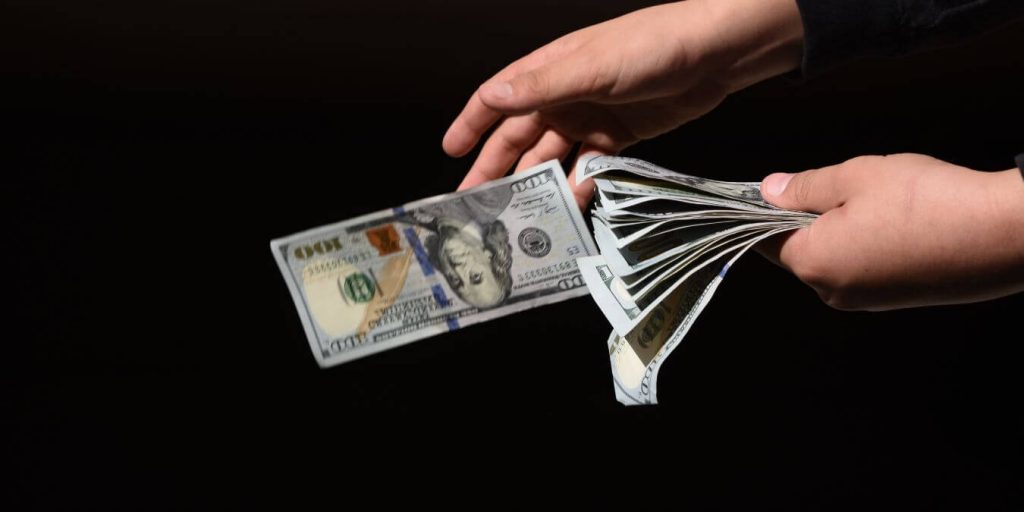
Keurigs cost anywhere from about $60 to $275, depending on the specific type you get and whether it is on sale. For instance, the K-Mini is great for small spaces or if only one person in the household drinks coffee. It costs about $100. The K-Classic costs about $150. The K-Elite retails for about $205 and can also make iced/cold drinks. (Also, Keurig machines in general can make more than coffee, for example, making tea and hot cocoa.)
The ongoing cost of supplies is where Keurigs get really expensive. A one-year supply of Starbucks K-Cups can cost close to $600, although a somewhat cheaper price is possible with other brands. Now, suppose you buy Starbucks coffee grounds for your French press. The price is going to be about $270. Huge difference.
Volume
You can make a large amount of coffee with a French press. Not so with Keurigs. If you host a lot of social events or have a large family, you’ll appreciate the three to 12 cups a French press can make at once. Keurigs make a single cup at a time, although quickly. Still, it does take longer than with a French press to make several cups.
Environment
The French press is the clear victor when it comes to the environment. K-Cups use a lot of plastic for an increased carbon footprint, although there are reusable cups available.
Does a French Press Make Coffee Taste Better?
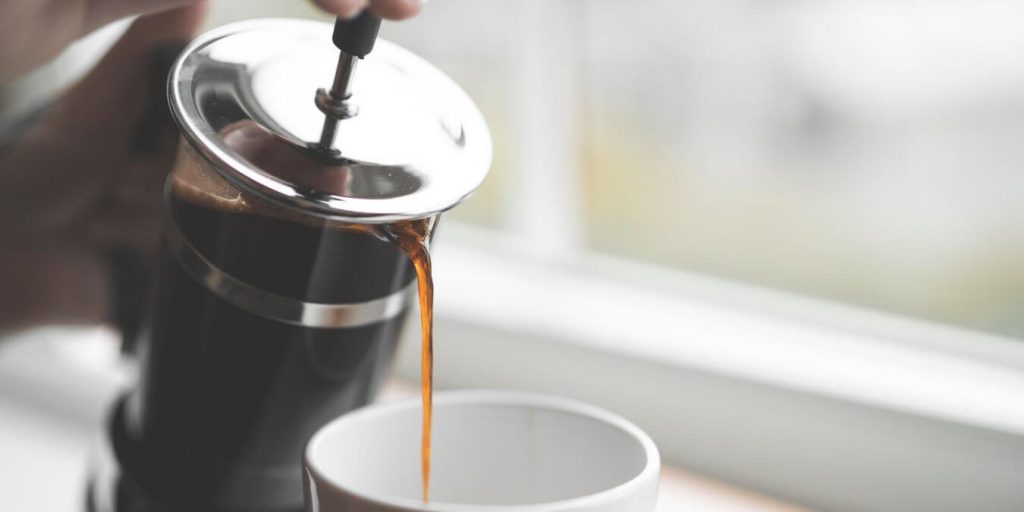
Yes! A French press definitely makes coffee taste better. You have complete control over the recipes and customizations. Of course, if you are new to making coffee, your first few tries with a French press might taste a little off until you get the hang of it. Many beginners make delicious coffee right from the start, though. Here are the general steps:
- Preheat the press.
- Measure and weigh the coffee beans.
- Grind beans to coarse grind size.
- Boil water to about 195 to 205 degrees Fahrenheit.
- Follow a 1:15 ratio of 1 gram of coffee for every 15 milliliters of water.
- Put the coffee grounds and then the hot water in the French press.
- Stir.
- Put the lid on and set your timer to four minutes (or your preferred time).
- Let the mixture steep.
- Check when the timer goes off or check until the color of coffee looks good.
- Press with the plunger, slowly. Push the plunger all the way down to avoid over-extraction brewing.
- Decant, pouring coffee into another flask slowly to avoid letting grinds flow into the coffee.
- Stir and serve.
Your Coffee Grounds Matter If You Want The Best Flavor
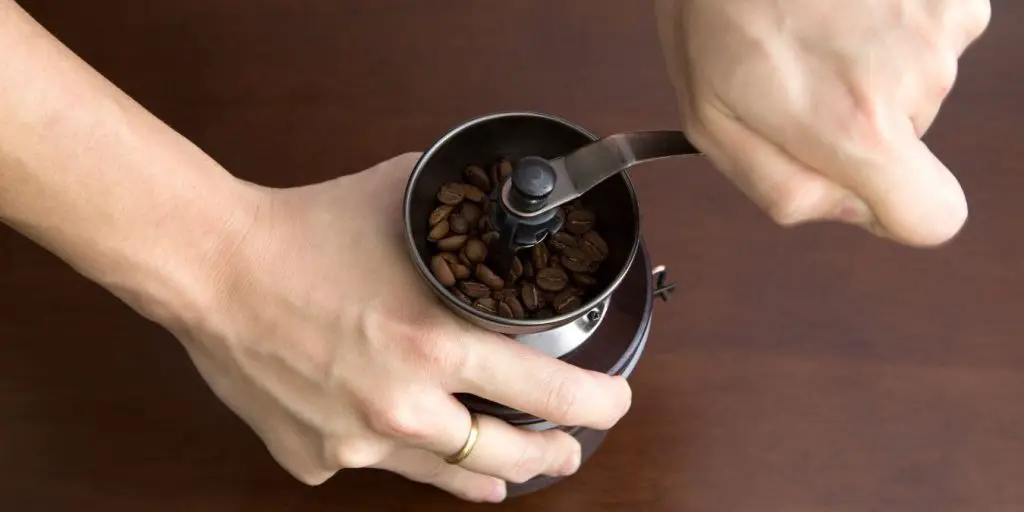
To get the most flavorful coffee, grind your coffee right before you brew it. Ground coffee stays at maximum flavor for only 20 to 30 minutes, so get it brewing as quickly as possible. (Whole coffee beans remain at peak freshness for about two weeks after they are roasted, so you have more flexibility there.)
Avoid pre-ground coffee. Its size is typically more appropriate for Keurigs and drip coffee makers. Size matters with a French press because the grounds can get stuck in the filter or even slip through. The result is a harder time pressing down the plunger and sludge in your coffee. Of course, even with a fresh coffee grind, your mug of coffee may still have grounds in it. That is fine and normal.
Do pour out your coffee after plunging instead of leaving it in the French press. Leaving it in is akin to keeping it brewing, and the flavor changes.
Why Should You Not Drink Coffee From a French Press?
Your risk of dying of heart-disease-related causes could theoretically increase slightly if you drink lots of unfiltered coffee, and French press coffee is unfiltered. For example, it does not pass through paper filters in the same way Keurig coffee does. It’s possible that unfiltered coffee can have an effect on the heart due to diterpenes. They are oily substances that may raise LDL cholesterol levels.
Basically, the risk of drinking unfiltered coffee seems to kick in when people drink nine or more unfiltered cups of coffee a day. If you drink this much French press coffee, you may want to consider a Keurig for part of your coffee needs, or divide the time between coffee and another beverage altogether.
In short, although there is some risk of increased mortality if you drink a lot of unfiltered coffee, it is not anything many people need to worry about.
French Press vs Keurig: Who Wins?
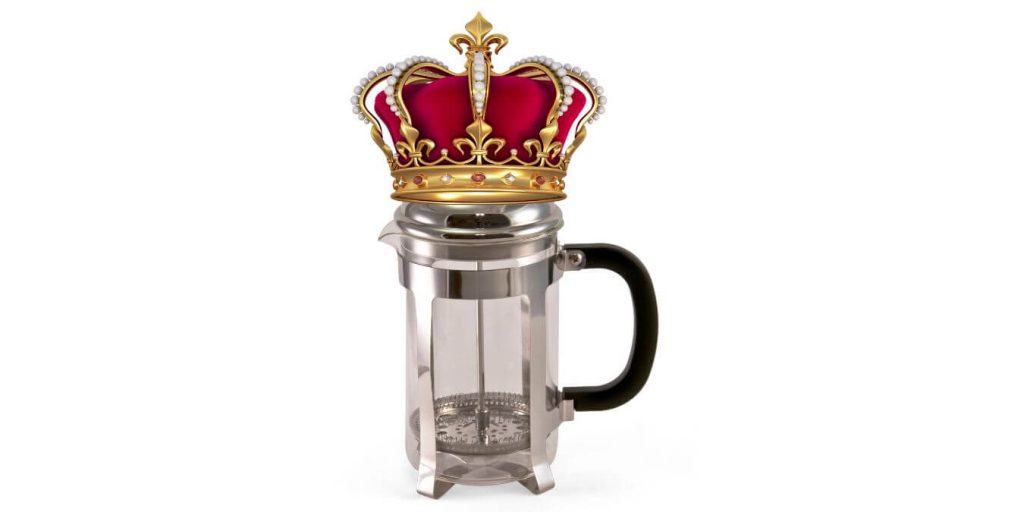
Stick with a French press if you appreciate bold, flavorful coffee. Go with a Keurig if you value convenience above all else.
Coffee in a french press will outperform Keurig Machines in terms of flavor and cost. But if you are a someone who just loves your coffee maker, there is certainly no shame in choosing one of the many Keurig machines available. Using a Keurig machine can save some time but keep in mind with a Keurig, you will end up spending more money on supplies and time on routine maintenance.
